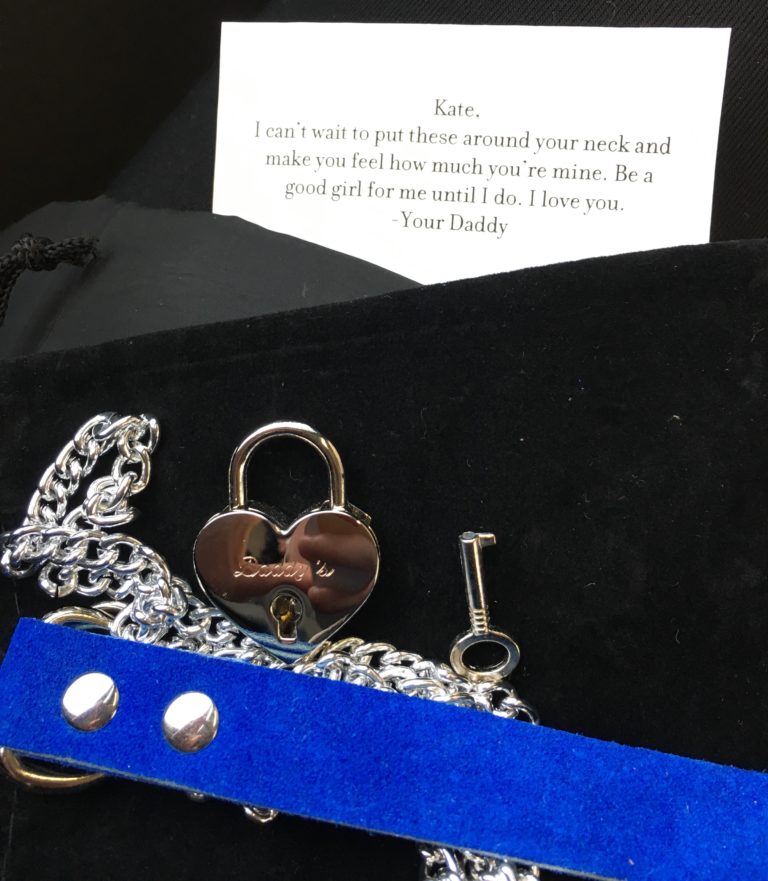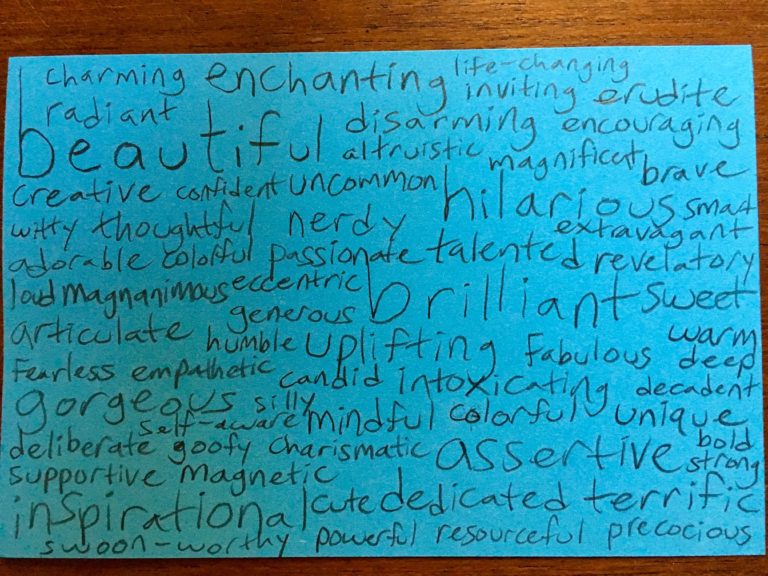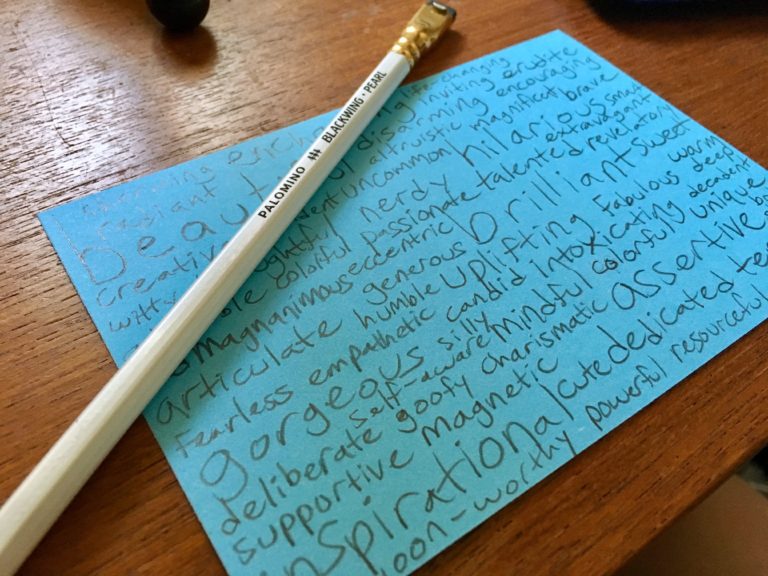
I’m not sure I really know anything about compatibility. I’ve only been in 2-3 relationships I would consider “long-term” in all my 27 years, so I’m maybe not the best person to advise you on what works. But I do know a lot about what doesn’t work, having lived through my fair share of disastrous relationships destined to fail. (Bleak? Yes. True? Also yes.)
You hear a lot in sex/dating media about well-known measures of compatibility: sharing similar interests, for example, or being able to make each other laugh. But here I present to you, for your consideration, 5 measures of compatibility that I think are under-discussed, rarely understood, and deceptively important…
Sexual desire style. Disregard this point if sex isn’t part of your relationship, but if it is: have you heard of responsive desire? Brought into popular consciousness through Emily Nagoski’s excellent book Come As You Are, responsive desire is a way of wanting sex that differs from our culture’s usual “lightning bolt to the genitals” understanding of how the sex drive works. “Instead of emerging in anticipation of sexual pleasure, like spontaneous desire,” Nagoski explains, “responsive desire emerges in response to sexual pleasure.” In other words, instead of wanting sex and then going to get it, folks whose desire is responsive often need to encounter sexual stimuli (dirty talk, porn, erotica, sexual touching, etc.) before they become aroused and start wanting sex.
Learning about this was revelatory for me, and many other folks who may have felt broken for seldom craving sex out of the blue. But here’s where compatibility comes in: I prefer to date and fuck folks whose desire style is closer to the “spontaneous” end of the spectrum, because when I date another responsive-desire person, sexual initiation can feel like the dreaded “Where should we go for dinner?” conversation: “Where do you want to go?” “Well, where do you want to go?” A person whose desire is spontaneous, to continue the metaphor, is likelier to say, “Here’s where I want to go. What say you?”
This is not to say you can’t date another responsive-desire person if that’s how you operate; it may just mean you both have to take a more proactive approach to purposely arousing each other (and yourselves) rather than waiting for someone else to bestow arousal upon you.
Decisiveness vs. indecision. Speaking of the “Where should we go for dinner?” conversation… I am a chronically indecisive person in many areas of life, partly owing to just lacking confidence in my own choices and tastes. It’s no secret that I’m submissive, so I like to be bossed around in bed, but I also find it affirming to be (consensually) bossed around by certain people outside of the bedroom. Weirdly, it’s a way they can show me they care.
My boyfriend, for example, is the type of person who loves making plans and being in charge of things. When he does a good job of this, he feels accomplished and proud. So he’s a good match for someone like me. When he plans a date night for us – makes reservations, gets us there on time, helps me choose what to order – I feel deeply loved and taken care of, while he enjoys the satisfaction of knowing he took care of me in that way.
Compatibility is about more than what you can do for each other; it’s also about what you enjoy doing for each other. If I was dating someone who was willing to make these types of plans but found it tiresome, each outing of this type would just drive us further apart and foster resentment – but because my partner enjoys making the exact kinds of decisions I don’t enjoy making, this interaction just brings us closer every time it happens.
Communication preferences. You’ve probably heard of the love languages. It’s an oversimplification of human psychology, perhaps, but it’s also a useful framework for understanding how to communicate with your partner.
I’ve dated people before whose love language was quality time, or acts of service, or gifts – and while all of those things are lovely, my most significant love languages are words and touch, so if I’m not getting those things in abundance, I don’t feel fully loved. It is possible to adjust your communication style to better suit a partner who differs from you in this way, but not everyone is willing or able to put in the psychological and logistical work required to make that shift.
Along similar lines, I’ve dated people before who didn’t like to text a lot when we were apart, or who answered my carefully-crafted messages with monosyllabic apathy, and that doesn’t work for me either. Communication is a huge part of what allows relationships to function smoothly and healthily, so if you and your partner have incompatible communication styles or preferences, it could become a major sticking point if it hasn’t already.
Coping strategies. What do you do when you’re stressed, sick, or depressed? How do you communicate at those times? What do you tend to want, need, and crave at those times – and what do you absolutely not want? Would your ideal partner give you support, or space? Would they bring you soup and sympathy, or would they back off and let you do your thing in peace?
While it’s useful to ponder these questions before they become relevant in a new relationship, often you won’t know quite how your stressful periods interact with your partners’ until you actually live through one together. It can be helpful to specifically ask for what you want – “Can you come over and cuddle me in silence for a while?” or “Sorry, I just need a few days to sort this out, but can we get dinner on Friday?” – but, depending on your partner’s own stress levels at that time, they may or may not be willing or able to give you what you’re asking for.
I learned this lesson the hard way when I had a boyfriend who suffered from intermittent depression, like me, but who needed altogether different things than I did when he was depressed. At those times, he craved emotional distance, lots of time alone to work through his feelings in private. He didn’t want kisses, or cuddles, or sex. But when I’m depressed, I usually want to be with the person/people I love, and get as close as possible, through both physically and non-physically intimate activities. Obviously, when we were both going through a tough time, we found each other pretty frustrating! Complementary needs in this regard are something I look out for now when assessing my potential compatibility with someone, because they can really make or break a relationship.
Relaxation activities. They say you don’t truly know whether you’re compatible with a partner until the two of you travel together. I think this is a good piece of wisdom, not only because travel can be stressful (see above) but also because vacationing together lets you see how your partner prefers to relax – which may be altogether different from how you prefer to do those things.
If you like to unwind by reading a book on the beach, but your partner wants to do the entire museum circuit, you may not be the best match – unless you’re able to happily go your separate ways and reconvene later on. This principle also applies to relaxation in your day-to-day, not just on vacation. If you need quiet time to recharge after a long day, but your partner needs to verbally unpack everything that happened to them and/or dance the day’s stress out at a club, you may not be the best fit – unless you can find ways to each get what you need, separately or together, without stepping on each other’s toes too much.
I often fondly reminisce on a Montreal trip I took with an adventurous, excitable friend. I expected her to drag me to historic sites and famous bagel shops – and she did, some of the time – but one afternoon, I told her I needed to recharge my introvert batteries and she suggested we go to a café with our books and journals and just sit in silence for a few hours, sipping coffee and chilling out. It was one of the most blissful experiences I’ve ever had on a vacation, and all because we were able to find common ground in how we chose to relax.
Which measures of compatibility do you consider important in a partner or friend?

